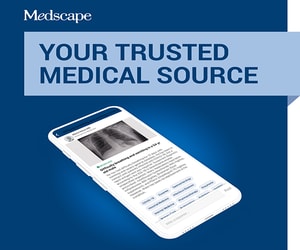October 16, 2009 (UPDATED October 19, 2009) — The US Food and Drug Administration (FDA) has approved a bivalent [recombinant] human papillomavirus (HPV) vaccine (Cervarix, GlaxoSmithKline) for the prevention of cervical cancer and precancers caused by HPV types 16 and 18 in women aged 10 through 25 years.
"Immunization with a vaccine such as Cervarix — along with annual doctor visits and Pap tests — will help protect women from cervical cancer, the second leading cause of cancer death in women in their twenties and thirties," said Deirdre Connelly, president, North American Pharmaceuticals, GlaxoSmithKline, in a company news release.
The approval was based primarily on data from a clinical study of more than 18,000 women aged 15 through 25 years, showing that the vaccine was 93% effective for preventing cervical precancer (cervical epithelial neoplasia grade ≥ 2 lesions and adenocarcinoma in situ) and cancer associated with HPV types 16 and 18, which are responsible for approximately 75% of cervical cancers in North America.
Use of the vaccine was also shown to prevent 70% of precancerous lesions, regardless of HPV type; further analysis revealed an approximately 89% efficacy rate against lesions caused by HPV type 31, the third most common cancer-causing type in North America.
Data from separate clinical studies confirmed that immune responses to the vaccine (geometric mean titres) were comparable between girls aged 10 to 14 years and women aged 15 to 25 years, suggesting similar efficacy.
The recommended vaccination regimen for the drug consists of a 0.5-mL dose administered intramuscularly at baseline, 1, and 6 months. Because of the risk for syncope, those receiving the vaccine should be observed for 15 minutes after each dose.
Adverse events reported in more than 20% of study vaccine recipients included injection site reactions (pain, erythema, and swelling), fatigue, headache, myalgia, gastrointestinal symptoms, and arthralgia.
The FDA warns that HPV vaccination is not recommended for women who are pregnant, think they may be pregnant, or plan to become pregnant during the 6-month vaccination course. Further postmarketing studies are planned to assess the effect of vaccination in this population.
Because no vaccine is 100% effective and vaccination does not protect against previously acquired HPV infection or infection with types not included in the vaccine, regular Papanicolaou tests should still be used to detect precancerous lesions for treatment.
The bivalent HPV vaccine previously was approved for use in the European Union, Australia, Brazil, South Korea, Mexico, and Taiwan.
A quadrivalent HPV vaccine (Gardasil, Merck & Company, Inc) previously was approved by the FDA in June 2006 for the prevention of disease caused by HPV types 6, 11, 16, and 18.
Medscape Medical News В© 2009 Medscape, LLC
Send press releases and comments to news@medscape.net.
Cite this: FDA Approves Cervarix for Cervical Cancer Prevention - Medscape - Oct 16, 2009.













Comments